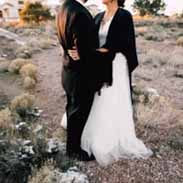Occupational Therapy Analysis Flashcards
Unlock all answers in this set
Unlock answersquestion
OT Code of Ethics (7 Principles)
answer
1. Beneficence 2. Nonmaleficence 3. Autonomy/Confidentiality 4. Social Justice 5. Procedural Justice 6. Vernacity 7. Fidelity
question
OT Code of Ethics (keywords)
answer
Altruism Equality Freedom Justice Dignity Truth Prudence
question
OT Theory
answer
occupation such as work, exercise, play were thought to have healing properties
question
Phillipe Pinel
answer
Mid-Late 1700's Prescribed work and exercise for clients Introduced work treatment for "insane" Found it helped people recover
question
Benjamin Franklin
answer
Inventor/Salesman Worked with prisoners Used light manual labor as prison sentence Positive results were seen
question
Dr. Benjamin Rush
answer
Physician Worked helped aid recovery in physical ailments Saw mind/body connection
question
Samuel Tuke
answer
1800's English Quaker Physician Known for "moral treatment' Not chained or punished Encouraged to work or exercise
question
Civil War Effects
answer
1860's - Moral Treatment Declines Focus moved to injured soldiers instead of using work as a treatment Healthcare was not public interest for 25 yrs.
question
Adolph Meyer
answer
Late 19th Century Psychiatrist Used activity treatment for patients OT built on his philosophy Promoted health by activities "Rhythms of Life" - balance between work, rest, and play Relationships & support systems important in recovery
question
Susan Tracy
answer
1900's -Nurse Patients who participated in activities recovered faster (Crafts/interpersonal relationships)
question
Herbert Hall
answer
1900's - Physician Prescribed activity instead of medicine Arts, crafts, hobbies and exercise had normalizing effect *Diversion & remedial
question
Diversion
answer
activity prescribed to those in advanced stages of disease
question
Remedial
answer
activity for therapeutic reasons
question
Dr. William Rush Dunton
answer
**FATHER OF OT** Occupation was most important medicine Began "occupational therapy" term Wrote OT newsletter (today is AJOT)
question
Eleanor Clark Slagle
answer
Social Worker who became OT Director of first OT school OT education centered around psychiatric patients
question
George Edward Barton
answer
Architect Benefited from OT while suffering from TB Built CONSOLATION HOUSE in NY to give patients a place to recover from illness and regain strength
question
NSPOT
answer
Formed in 1917 by Barton, Dunton, Slagle, and Tracy Today is AOTA
question
WWI Impact
answer
Slagle wanted military leaders to provide OT to wounded Small group sent to Europe called "Reconstruction Aides"
question
Reconstruction Aides
answer
Small group of OT sent to assist soldiers Requirements: 25 years old US citizen HS Graduate Professional Training
question
WWII Impact
answer
Therapists employed to rehab soldiers 1945 - 3,000 OTs 1947 - First OT book written 1950 - COTA initiated 1961- 500 COTAs
question
Types of Observations
answer
Formal/structured Informal/unstructured
question
Methods of Communication (Observation)
answer
Verbal Non-Verbal Written
question
Parts of Interview
answer
1. Initial contact - put client at ease 2. Information Gathering 3. Closure - Summarize, thank
question
Purpose of Interview
answer
Collect information Establish understanding of OT Provide opportunity to discuss patient's situation
question
Uses of Documentation
answer
Accurate information Reimbursement for actual treatment Keeps tabs on progress/regression Legal Document (workmans comp) Communication between client, family, and doctors
question
RUMBA
answer
1970's R- Relevant U- Understandable M- Measurable B- Behavior A- Achievable
question
POMR
answer
Documentation Dr. Lawrence Weed 1960 Problem Oriented Medical Record List problems Best way to serve client *SOAP* is a type
question
SOAP (G)
answer
Common POMR S = Subjective (Information stated) O= Objective (Measurable Data) A = Assessment (Judgement) P = Plan (To Resolve Problems) G = Goals
question
OT Process (3 Components)
answer
1. Evaluation 2. Intervention 3. Outcomes
question
OT Process (Evaluation)
answer
Referral - Order for OT Screening - Observing patient needs Occupational Profile - Demographics Occupational Performance - Analyzing/Observing how patient is functioning
question
OT Process (Intervention)
answer
Intervention Planning - use evaluation info to create treatment plan Implementation - use plan to reach goals Review of Intervention - adjust, changes, meeting goals?
question
OT Process (Outcomes)
answer
Have your goals been met? More OT? Less OT? Dismissal?
question
Compensatory/Adaptive
answer
Adapting task objectives Changing methods (extensions/tools) Modify environment Train family or caregiver
question
Outcome Importance
answer
To view progress or regression To continue more/less OT or dismissal Decision maker
question
OT Process (Steps)
answer
1. Referral 2. Screening 3. Treatment Plan 4. Implementation 5. Review/Reflect/Change 6. Outcomes/Goals
question
Practice Setting
answer
where OT treatment or services take place Hospitals Extended Care Physician Office School Prison System Group Home Home health Daycare
question
Service Delivery
answer
type of OT services being provided to facilitate change in patient performance
question
Spheres of Practice
answer
Looking at OT in Bio, Psych, and Social Model
question
Continuum of Care
answer
Various levels of care are utilized How OT services can be used to help patient with healing process Aunt Flossie (hospital - nursing home - rehab - home care - outpatient OT)
question
Holistic Approach
answer
treatment should consider body, mind, and spirit while working towards goals
question
Bio-Psycho-Social Approach
answer
Bio - disease/disorder, trauma, pain Psycho - emotional, addiction Social - ID, developmental delay, limitations, ASD
question
Theory
answer
set of ideas that explain things research based
question
MOP
answer
Model of Practice to organize our thoughts
question
FOR
answer
Frame of Reference Guide OT's interventions Research supported Evidence based practice
question
MOHO
answer
Model of Human Occupation (best MOP) "systems model" environment where engaged in OT activity Complex interaction Volition, habit, performance
question
MOHO - Habits/Roles/Process
answer
Input - take info Throughput - processing Output - did they do it Feedback - changes/adaptations Input = volition/habit/performance = Output



